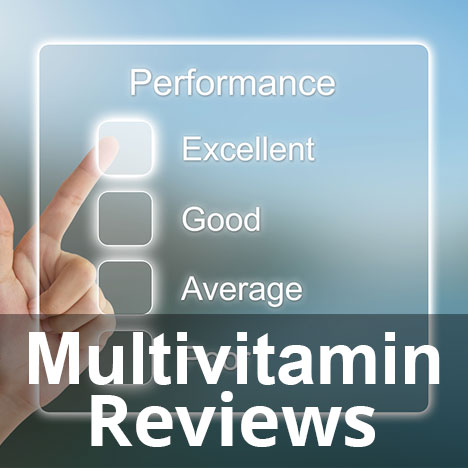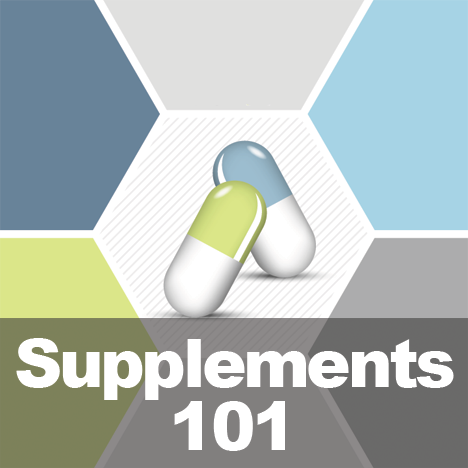Admittedly, the title of this article can be a little misleading, as the following information is not intended to set the stage for a battle between whole food supplements and synthetic multivitamins. In general terms, yes, multivitamins derived from whole foods provide a greater range of benefits than multivitamins entirely derived from synthetic sources. However, when factoring in the level of quality, there is much more to the picture of what makes for the best multivitamins.
Whole Food Nutrition
Let’s first take a closer look at exactly what whole food nutrition is and the benefits thereof. Simply put, something that is “whole” is said to still be in its original state. The more changes induced, the less “whole” it becomes. But what if these changes are meant to refine or improve something’s original state? In the case of steel, by adding…………the result is stainless steel, which is obviously an improvement to regular steel. While by definition, the term “refined” means to “……………”, in regards to foods, the opposite occurs. Nutritionally speaking, refined foods are anything but improved.
Needless to say, in the human body, which is a complex system of biochemical processes, inducing changes is a different ballgame altogether.
The term “whole” can also be thought of as that which is made up of multiple parts. The less whole something is, the more asunder are the parts making it up. And since Mother Nature does not produce nutrients in isolated forms, in order for them to properly work within the human body as intended by Nature, nutrients need their other “parts” to provide a synergistic benefit (the whole being greater than the parts).
For example, vitamins and minerals in food sources need other nutrients to work properly. If an isolated, synthetic nutrient is introduced into the body, the co-factors needed to make the nutrient work properly will be called upon from the bodies tissue storehouses.
Vitamin C, for example, is made up of eight components in its natural state found in foods, such as citrus. One of these components is Ascorbic Acid, which is the outer protective shell for the Vitamin C compound. It is Ascorbic Acid that is commonly isolated in a synthetic form and packaged as Vitamin C supplements. However, in order for it to work properly in the body, Ascorbic Acid must be combined with the other components that make up Vitamin C in its natural state, including multiple co-factors, Bioflavonoids and Rutin – all of which must be pulled from the bodies tissue storehouses. If any of these other components are lacking in the body, the Ascorbic Acid is simply passed through and excreted by the kidneys, in essence, providing no benefit whatsoever.
Taking Whole Foods Multivitamins
In the case of supplements, when a multivitamin is said to be derived from whole food sources, it is as close to the original state in which it’s constituents (vitamins, minerals, co-factors, antioxidants, enzymes, co-enzymes, trace elements, etc.) are found in natural food sources. It is not the potency of the nutrient that matters, but rather, its form and bio-availability.
Clearly, there is a great benefit to taking whole food multivitamins. But that doesn’t necessarily mean they are for everybody, especially people with food allergies. The fact of the matter is that most whole food vitamins contain isolated vitamins and minerals that have been extracted from whole food sources, rather than being composed of concentrated whole foods in their original, whole form. Many whole food multivitamins also contain synthetic ingredients. The champion of the whole foods lifestyle, Whole Foods, even uses synthetics in their line of multivitamins. Their’s happens to be an algae base integrated with synthetic supplements. Keep in mind that under current law, only 10% of a multivitamins ingredients need to be derived from plant sources in order for it to be marketed as “natural”, which should make anyone think twice about taking a supplement just because it is FDA approved. That’s what I call whole food for thought.
Now, all of this isn’t to say that synthetic multivitamins should be avoided entirely. Quite the contrary, actually. The fact is, most whole food vitamins contain synthetics. And there is a lot more to synthetic actives than meets the eye. To begin with, not all synthetics are equal in quality.
A Case for Synthetic Vitamins
While the vast majority of synthetically derived multivitamins (namely those commonly found at drugstores and grocery chains) fall short in quality compared to top-shelf, whole food multivitamins, there are certain distinguishing factors that help make synthetic multivitamins stand out from the rest of the pack.
Binders
– One of the greatest distinguishing factors in the effectiveness of synthetic actives is the binding material. Many synthetic multivitamins (often the cheaply priced drugstore brands) contain cheap binders that hinder the proper absorption of nutrients. Oftentimes the nutrients in these vitamins are destroyed by one’s own stomach acid before reaching the small intestine (where it is absorbed into the bloodstream). Pharmacy grade multivitamins, however, like those manufactured by XtendLife (the top-rated brand at BMV and one we are very familiar with) use high quality binders like…….., as well as a steric coating to ensure nutrients survive the journey to the small intestine.
Synergy
– In the scope of multivitamins, synergy refers to how well the individual nutrients (parts) work together to make an effective supplement (whole). As mentioned, nutrients are not naturally produced in isolated forms, but rather, need other actives in order to provide their greatest benefit. For example, since Vitamin C needs the mineral Copper (among several other actives) to achieve its full effectiveness, and Vitamin E needs the mineral Selenium to induce anti-oxidative benefits, if these actives are neither present together nor in the proper ratio, there is not as much benefit (if any in some cases) of taking the nutrient on its own. And just because it’s a “multi-vitamin” with a long list of ingredients, does not necessarily mean they are the proper ingredients. In this case, you are better off taking a whole food multivitamin.
Dosage
– Along the same lines of synergy, nutrient dosages also play a major role in absorption. One issue with whole food vitamins is that while whole food nutrients are in their natural and ideal form, in the case of a multivitamin wherein many other nutrients are being taken at the same time, there is a degree of counteraction that takes place. For instance, Zinc, in a whole food or herbal form is very likely to also contain Manganese, Chromium and Copper, all of which compete with Zinc for absorption. Therefore, the amount of Zinc in a 100% whole food supplement (which is lower to begin with than synthetic vitamins) will not be fully absorbed. In a high quality hybrid whole food synthetic multivitamin, however, additional supplementation of nutrients can maximize absorption.
Allergens
– While there is an argument against synthetics in that they trigger an immune responses in some people, the same can be said for whole food multivitamins triggering allergy responses. Some whole food multivitamins have flour and starch fillers that often contain gluten, which an increasing number of people are developing sensitivities to. Needless to say, this is why it is important to do your research ahead of time and verify every ingredient (including fillers and binders) that are in your multivitamin, especially if you have allergies and/or immunity conditions.
In conclusion, whether supplementing with a whole food or synthetic multivitamin, it should be decided on an individual basis. Beyond the scope of intolerances to particular actives and foods, what ultimately matters is the quality of the multivitamin itself, whether 100% whole food, 100% synthetic, or a hybrid of whole food and synthetic nutrients, and which leads us to the next segment of Get The Facts: The Importance of Taking High Quality Multivitamins
Sources: Xtend-Life, Dr. Ben Kim




